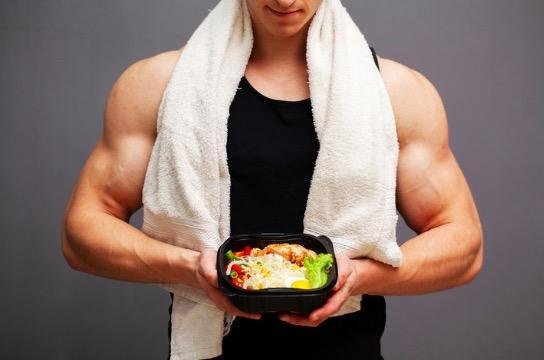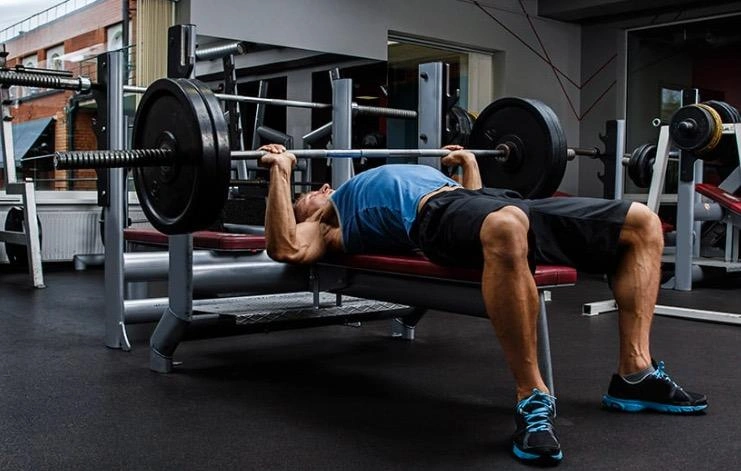Introduction:
Protein isn’t just for bodybuilders; it’s the fundamental building block for sculpting a lean, muscular physique. Whether you’re hitting the gym hard or simply aiming for a healthier lifestyle, understanding the importance of protein and how to incorporate it into your diet is crucial for achieving your fitness goals. This comprehensive guide will break down everything you need to know about protein, from its essential role in muscle growth and testosterone production to the best sources and how to determine your individual needs.
Why Protein is Essential for Building Lean Muscle

Protein is more than just a macronutrient; it’s the driving force behind muscle growth and repair. When you engage in resistance training or other forms of exercise, you create microscopic tears in your muscle fibers. Protein provides the amino acids necessary to repair and rebuild these fibers, leading to increased muscle mass and strength.
But protein’s role in muscle building goes beyond repair. It also stimulates muscle protein synthesis (MPS), the process by which your body creates new muscle proteins. This process is essential for muscle growth and adaptation to exercise.
The Testosterone Connection: Protein’s Impact on Your Manly Hormone
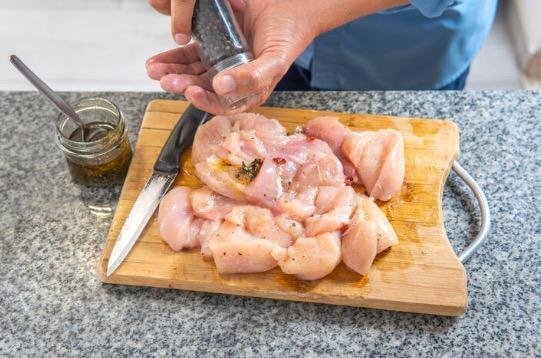
Testosterone, the primary male sex hormone, is crucial for muscle growth, strength, and overall vitality. Adequate protein intake is essential for maintaining healthy testosterone levels, as protein provides the building blocks for this hormone’s production. Studies have shown that low protein intake can lead to decreased testosterone levels, while increasing protein consumption can help boost testosterone naturally.
Determining Your Protein Needs: Fueling Your Fitness Goals
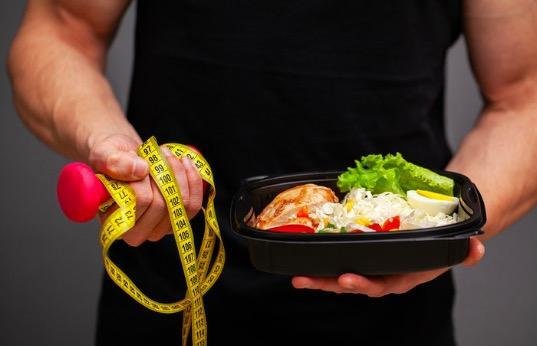
Your individual protein needs depend on several factors, including your age, weight, activity level, and fitness goals. The Recommended Dietary Allowance (RDA) for protein is 0.8 grams per kilogram of body weight. However, if you’re physically active or looking to build muscle, you’ll need more. Athletes and those engaging in regular strength training may need 1.2 to 2 grams of protein per kilogram of body weight.
It’s important to note that individual protein needs can vary. Consulting a registered dietitian or nutritionist can help you determine the optimal protein intake for your specific goals and lifestyle.
The Best Protein Sources: Fueling Your Body Right
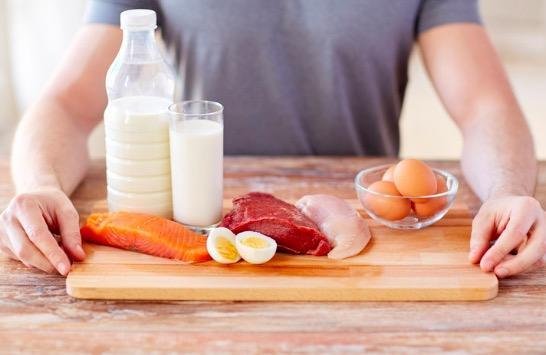
To meet your protein needs and maximize muscle growth, it’s essential to choose high-quality sources that provide all the essential amino acids your body can’t produce on its own. Here’s a breakdown of the best protein sources:
Animal-Based Protein Sources:
- Lean Meats: Chicken, turkey, beef, pork, and lamb are excellent sources of protein. Opt for lean cuts to minimize saturated fat intake.
- Fish and Seafood: Salmon, tuna, trout, and sardines are not only packed with protein but also rich in omega-3 fatty acids, which offer numerous health benefits, including reduced inflammation and improved heart health.
- Dairy: Milk, yogurt, and cheese are good sources of protein and calcium. Choose low-fat or non-fat options to reduce calorie and saturated fat intake.
- Eggs: Eggs are a nutritional powerhouse, providing a complete protein source along with essential vitamins and minerals like choline, which is important for brain health.
Plant-Based Protein Sources:
- Legumes: Lentils, beans, chickpeas, and other legumes are excellent sources of protein and fiber, making them a filling and nutritious option for vegetarians and vegans.
- Nuts and Seeds: Almonds, walnuts, chia seeds, flaxseeds, and pumpkin seeds are packed with protein and healthy fats, making them a great addition to smoothies, salads, or yogurt.
- Soy Products: Tofu, tempeh, and edamame are complete protein sources and offer additional benefits like iron and calcium.
- Whole Grains: Quinoa, brown rice, and oats contain more protein than refined grains and also provide fiber for digestive health.
Combining Protein Sources for Complete Nutrition
While animal-based proteins are considered complete, meaning they contain all the essential amino acids, some plant-based proteins are incomplete. However, you can easily create complete proteins by combining different plant-based sources. For example, pairing rice and beans or hummus and whole-wheat pita bread provides all the essential amino acids your body needs.
Incorporating Protein into Every Meal
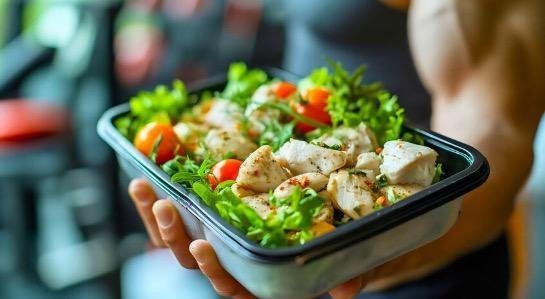
To ensure you’re meeting your daily protein requirements and maximizing muscle growth, aim to include a source of protein in every meal and snack. Here are some ideas:
- Breakfast: Eggs (scrambled, fried, omelets), Greek yogurt with berries and nuts, protein smoothies.
- Lunch: Grilled chicken or fish salad, lentil soup, turkey sandwich on whole-wheat bread.
- Dinner: Baked salmon, lean steak, chicken stir-fry, lentil stew.
- Snacks: Hard-boiled eggs, Greek yogurt, cottage cheese, nuts, seeds, or protein bars.
Protein Supplements: Are They Necessary?

Protein supplements, such as whey, casein, and plant-based protein powders, can be a convenient way to increase your protein intake, especially for athletes or those with busy lifestyles. However, they are not essential for everyone. Whole food sources are generally considered superior, as they offer a wider range of nutrients and are less processed.
If you choose to use protein supplements, opt for high-quality brands with minimal added sugars and artificial ingredients. Consult with a healthcare professional or registered dietitian to determine if protein supplements are right for you and to determine the appropriate dosage.
Protein and Special Diets
If you follow a specific diet, such as vegetarian or vegan, it’s important to be mindful of your protein intake. Vegetarians and vegans can obtain complete proteins by combining different plant-based sources, such as rice and beans or lentils and whole grains.
Individuals with dietary restrictions, such as gluten or dairy allergies, can still find plenty of protein-rich options. Tofu, lentils, quinoa, and beans are naturally gluten-free, while almond milk, soy yogurt, and other dairy-free alternatives can provide protein for those with lactose intolerance.
Potential Risks of Excessive Protein Intake
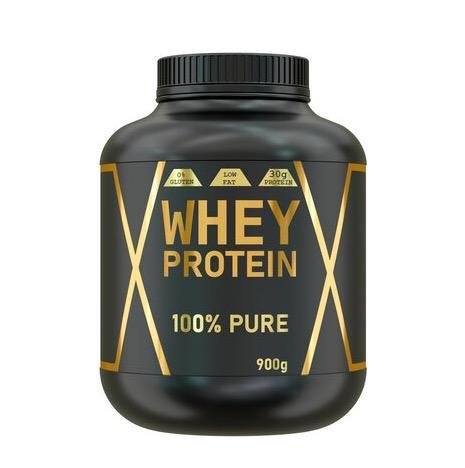
While protein is essential, excessive intake can have potential drawbacks:
- Kidney Strain: High protein intake may put extra stress on your kidneys, especially if you have pre-existing kidney conditions.
- Dehydration: Your body needs more water to process protein, so high protein intake can lead to dehydration if you don’t increase your water intake accordingly.
- Nutrient Imbalance: Focusing too heavily on protein may lead to neglecting other essential nutrients like carbohydrates and fats, which are also important for overall health.
To avoid these risks, consume protein in moderation and maintain a balanced diet that includes a variety of nutrient-rich foods. Consult with a healthcare professional or registered dietitian to determine the appropriate protein intake for your individual needs and health status.
Conclusion
Protein is a vital nutrient that plays a crucial role in muscle growth, repair, and overall health. By understanding your protein needs, choosing high-quality sources, and incorporating protein into every meal, you can optimize your fitness results, boost your testosterone levels, and enhance your overall well-being. Remember, it’s not just about how much protein you consume, but also the quality of your sources and the balance of your overall diet.
Don’t miss out on valuable tips and insights! Sign up for our newsletter to receive the latest in men’s fitness, fashion, and lifestyle advice.

